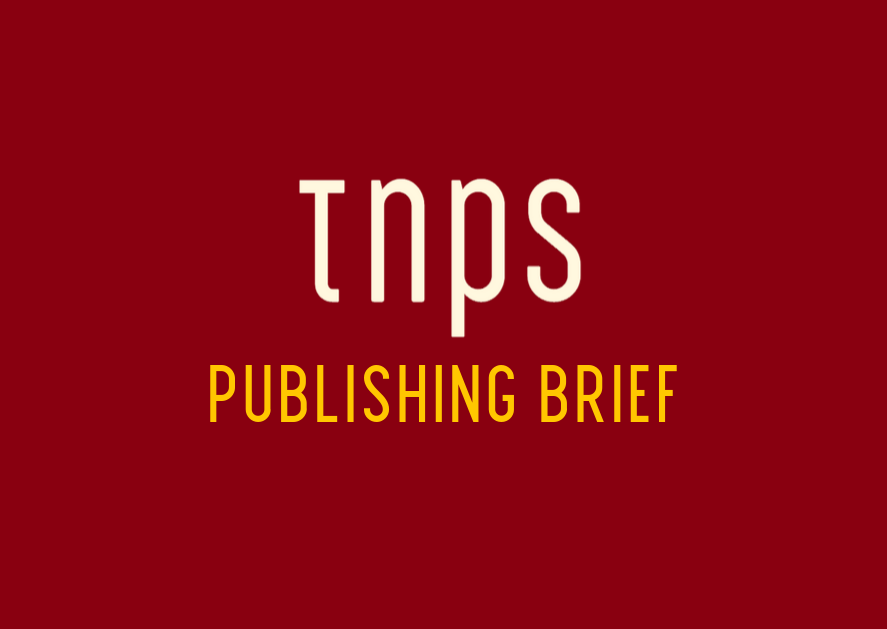As the industry watches Middle Grade sales and reading decline, grasping at easy excuses – such as that 70% of US nine year-olds don’t have phones – just beggars belief. How the f**k do they think Harry Potter or Enid Blyton got noticed and sold millions of books back in nineteen bow and arrow?
I’m indebted to Andrew Rhomberg (on LinkedIn) for bringing to my attention a Slate article that must take the prize as the dumbest publishing headline so far this year.
“The real reading crisis involves kids who don’t have phones”, runs the clickbait headline that seems to willfully misunderstand the problem. Slate, hang your head in shame!
A disturbing trend in lazy thinking
What it does is highlight a disturbing trend in lazy thinking in our industry – that thanks to TikTok, the mobile phone, for so long the enemy of publishing, has suddenly became the industry’s saviour.
To the extent that there is any truth at all in that idea, we should be deeply worried as TikTok heads towards being banned in the US. But the reality of course is that TikTok drives traffic to particular books and authors, but does not necessarily boost book sales overall.
But as the industry watches Middle Grade sales and reading decline, grasping at easy excuses – such as that 70% of nine year-olds don’t have phones – just beggars belief.
How the f**k do they think Harry Potter or Enid Blyton got noticed and sold millions of books back in nineteen bow and arrow?
The first mobile phone with a full colour screen had four different colours
The first Potter book was published in 1997, the same year Siemens launched the then revolutionary S10, the first mobile phone with a full colour screen, that could display up to six lines of information in four different colours (white, red, blue and green). The only time kids back then ever saw video on a phone was while watching re-runs of Gerry Anderson’s Thunderbirds.
Amazon was three years old. Online shopping was a novelty. TikTok? Do be serious. Social media only appeared in 1997, for adults (Six Degrees dot com, anyone?) and the mighty My Space did not get to one million users until 2004, the same year Facebook launched.
5 million books sold in 24 hours
The fifth Potter book, Order of the Phoenix, made publishing history by selling 5 million copies within 24 hours of its release in 2003. TikTok had f**k all to do with it.
So just how stupid do you have to be to say, “The real reading crisis involves kids who don’t have phones“?
Buried away in the Slate article is the “real” real reason: The abomination that is synthetic phonics, being used in schools across the US and UK to teach children to sound out two and three letter words and pass phonics diagnostics tests devised by commercial companies that are making millions out of undermining our reading culture, making reading a book as tedious as watching paint dry.
A ticking time bomb
Back last December I went into detail about why phonics is a ticking time bomb for English-language publishers.

From that post:
Child-phonics advocates (i.e. people who make money from this garbage) like to give us ever-more nonsense about digraphs and diphthongs, trigraphs and split digraphs and phoneme awareness and cognitive load, so the teachers have to waste their time learning to teach the children how to waste their time learning to pass phonics tests.
You see, this is all just about tolerable (not efficient, but not as damaging) for adult and secondary school learners of English as a second language, that understand rules of grammar and can get their heads around basic phonics vocabulary. But WTF is the point of telling three and four year old children to follow the CVC (consonant-vowel-consonant) rule so they can apply the magic-e rule, or what to do when they see the digraph “ea”, or “ai”, when they cannot read in the first place?
Children try their best to meet the nonsense rules teachers throw at them, but they are so busy learning phonics rules they lose sight of the actual reading, and more importantly they lose sight of the joy of reading.
Future readers, authors, publishers, the country and the economy ultimately pay the price.
The ticking bomb is getting louder.
And the really sad thing is that in 2022, University College London issued a landmark report into just how bad phonics has been for kids in England, the home of the English language.
But of course the British government ignored it, and the commercial companies that make millions from schools buying this crap simply bumped up their propaganda machine to drown out the facts.
In 2005 a single Middle Grade book could move the stock market
Maybe ministers (UK) and lawmakers (US) should look back and ask how English was being taught in 1997, when Harry Potter was first published, or in 2003 when five million Potter books were bought in 24 hours.
Back to when a single MG book could move the stock market. In 2005 Bloomsbury and Scholastic announced the imminent 6th Potter book. “Shares of Bloomsbury surged 7 percent on the news while Scholastic stock jumped 4 percent in morning trading on Nasdaq.“
And Potter was a rising tide lifting all boats.
From The Guardian in 2005: In a state of decline before the appearance of Harry Potter in 1997, sales of children’s books excluding the young wizard have since been growing at a rate of 2% a year.
Phonics became official school policy in England in 2010. It’s been downhill ever since.
This post first appeared on TNPS LinkedIn.






All right, so we’re going to blame phonics, which was made the standard in 2010. Very well.
How, then, do we account for the fact that sales of children’s books were “In a state of decline before the appearance of Harry Potter in 1997”?
I’m no Stephen Hawking, but I do know that something that happened in 2010 could not have had an effect on things that were happening in the 1990s.
There’s a big difference between the ebb and flow decline we saw in the 1990s, and there “crisis” happening now.
All market categories have their ups and downs. That’s part of the business cycle.
But what we are seeing now is growing numbers of children that cannot read properly, and have had the joy of reading destroyed by commercial phonics programmes backed by education departments looking for quick fix solutions.
The UCL report in 2022 made absolutely clear that the “obsession with phonics” is “failing children.”
https://www.theguardian.com/education/2022/jan/19/focus-on-phonics-to-teach-reading-is-failing-children-says-landmark-study
In 2022, 175,000 school kids in England, the home of the English language started secondary school unable to read to an already low expected standard.
In 2023 187,0000 five-year-olds in England – or 30 per cent – were falling behind their expected reading levels, up from 27% in 2018/19.
I run a school here in The Gambia. We do not use Jolly Phonics, the official policy here. My children’s reading standards are years ahead of their counterparts in other schools, where children are being taught to sounds out letters, not read words.